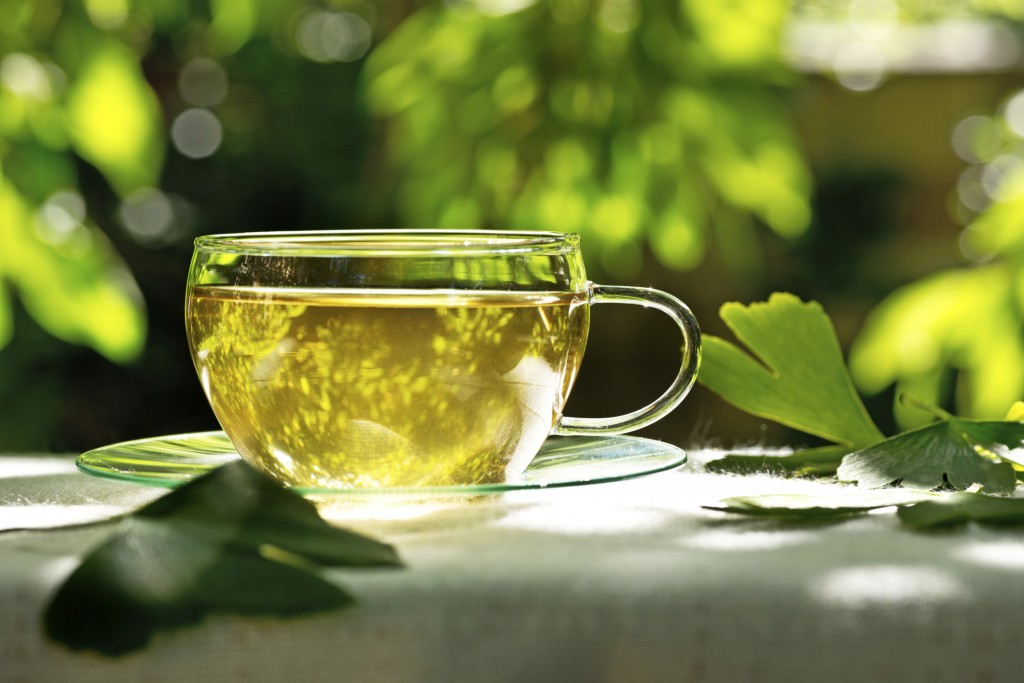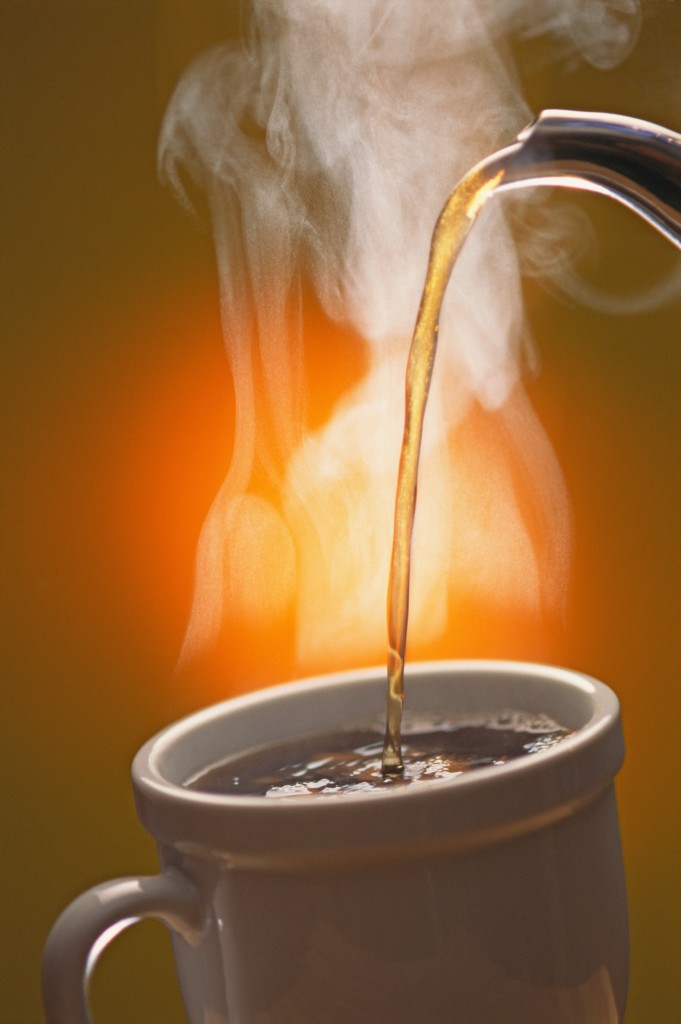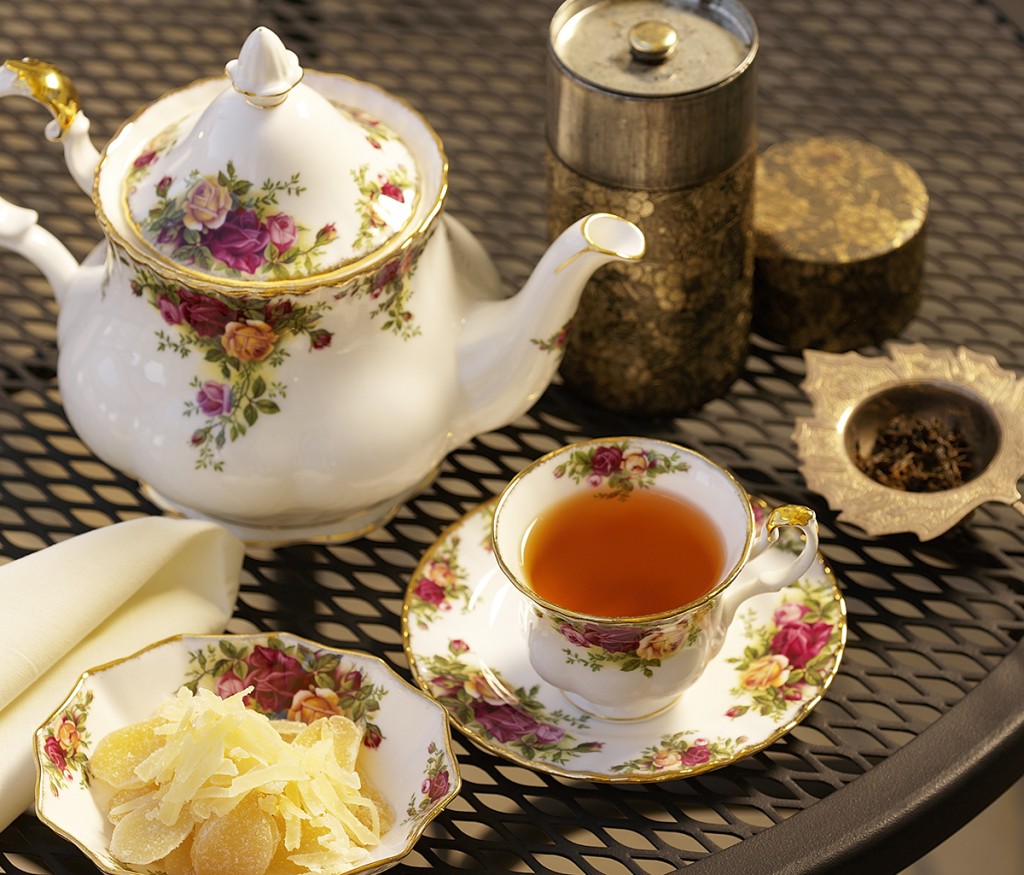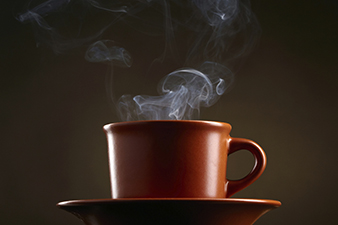The Great Warm Up: Fight Aging with Coffee and Tea

Cool weather has finally come to Southern California. The nights and early mornings can be quite chilly so what could be better than a warm drink? There’s something very comforting about settling in with a freshly brewed cup of coffee or tea when it’s cool (or cold) outside. Did you know that both beverages offer a number of age-defying benefits? Plus the warm, steamy liquid is soothing if you have a cold because it can help open up nasal passages. Coffee and tea drinks are one of those indulgences that are good for you in so many ways! Let’s count them:
Tea

After water, tea is the most consumed beverage in the world. It was introduced in the 10th century BC in China and used for its medicinal properties. Later, Portuguese merchants introduced tea to Europe in the 16th century. I was surprised to learn that it was the British who introduced tea to India. Drinking tea can produce a calming effect, but it also helps improve concentration and cognitive skills. Tea is loaded with healthful FoodTrients.
Boosts endurance – Scientists have found that the antioxidants in green tea increase the body’s ability to burn fat as fuel, which improves muscle performance.
Loaded with antioxidants – Antioxidants destroy free radicals, which damage DNA. Reducing DNA damage helps protect against a number of cancers, including breast, colon, colorectal, skin, lung, stomach, liver, ovarian and prostate.
 Smaller waist – In a study, participants who regularly consumed hot tea had lower waist circumference and lower BMI (body mass index) than participants who did not drink tea. Scientists speculate that regular tea drinking lowers the risk of metabolic syndrome, which increases the risk of diabetes, artery disease and stroke. This may be partially explained by the fact that sipping a warm drink is satisfying and helps prevent hunger, so one may eat less.
Smaller waist – In a study, participants who regularly consumed hot tea had lower waist circumference and lower BMI (body mass index) than participants who did not drink tea. Scientists speculate that regular tea drinking lowers the risk of metabolic syndrome, which increases the risk of diabetes, artery disease and stroke. This may be partially explained by the fact that sipping a warm drink is satisfying and helps prevent hunger, so one may eat less.
Helps fight diabetes 2 – Studies suggest that compounds in green tea could help those with type 2 diabetesbetter process sugars.
Protects against cognitive deterioration – The polyphenolsin green tea may help maintain the parts of the brain that regulate learning and memory, which may eliminate or slow some of the effects of degenerative brain diseases such as Alzheimer’s.
Bone health – There is evidence that green tea can improve bone mineral density.
Other Tea Varieties
Many healthful fruits and herbs are available to brew as ‘tea’, though they are not made from actual tea leaves. Health food stores and Whole Foods carry many of these items.
- Jujube – Sometimes referred to as the Chinese date, the jujube fruit has been part of the Chinese diet for nearly 2,000 years and is often brewed as tea. It’s rich in antioxidants and may help relieve constipation.
- Lemongrass – A long grass-like plant readily found in health food stores and Asian markets, lemongrass can be easily brewed into tea by following my recipe for Honey Lemongrass Tea. Laboratory studies indicate that lemongrass components could prevent growth of cancer cells. For example, a 2009 study found that citral from lemongrass slowed the growth of breast cancer cells in the laboratory. The components of lemongrass might also have a sedative effect, helping to increase sleep.
- Moringa – Also not a real tea, but moringa leaves are from a plant with many great health properties. Moringa contains antioxidants, vitamins and boosts energy levels. Moringa tea can be purchased in health food stores and on Amazon.
A delicious tea that’s especially festive for the holiday season is my recipe for Gingerroot Black Tea from the Age Gracefully Cookbook. The fresh gingerroot in the tea provides protection from inflammation thereby easing arthritis and allergy symptoms. Black tea has many healthful properties including flavonoids, which help strengthen blood vessel walls and improve concentration.
Gingerroot Black Tea

¼ inch gingerroot, peeled and sliced thinly
2 black teabags
2 cups boiling water
2 rock sugar stirrers (optional)
- Combine the gingerroot and the teabags in a pitcher with the boiling water. Steep for 1-3 minutes; strain
- Pour into two teacups; serve with rock sugar stirrers, if desired
Coffee

Grown in 70 countries around the world but first consumed in Yemen in the 15th century, coffee is the second most consumed beverage in the world. Coffee’s many health benefits make it an excellent beverage for most adults to enjoy on a daily basis.
- Coffee can improve energy levels and enhance brain function – Caffeine helps the firing of neurons, improving memory, mood, vigilance, energy levels, reaction times and general cognitive function.
- Helps burn fat – The caffeine in coffee boosts metabolic rate by 3%-11%.
- Improves physical performance – Caffeine increases adrenaline levels in the blood, which make our bodies ready for intense physical exertion. Plus, caffeine helps break down body fat into the bloodstream, making it available for fuel.
- Contains essential nutrients – Coffee contains several important nutrients, including small but significant amounts of riboflavin, pantothenic acid, manganese, potassium, magnesium and niacin.
- May lower the risk of type 2 diabetes – According to an extensive study of 457,922 individuals, each daily cup of coffee was associated with a 7% reduced risk of developing type 2 diabetes.
- Liver protection – Studies have suggested that drinking coffee may help protect from cirrhosis of the liver.
- Helps stave off depression – Studies have shown that individuals who drink coffee are less likely to suffer from depression.
- May reduce the risk of some cancers – Coffee drinkers have a lower risk of liver and colorectal cancer, the 3rd and 4th leading causes of cancer death worldwide.
- Great source of antioxidants – Most people get more antioxidants from coffee than fruits and vegetables combined. Antioxidants prevent and repair damage to cells caused by free radicals.
My recipe for Cinnamon Coffee has a host of health benefits. Both cinnamon and nutmeg decrease inflammation inside the body. Cloves have high levels of antioxidants for skin renewal and regeneration. Molasses and evaporated milk provide calcium for strong bones and teeth. And coffee contains antioxidants that help prevent damage to your DNA.
Cinnamon Coffee
SERVES 4
1 can (12 oz) evaporated milk
4 Tbs. molasses (or to taste)
1 tsp. ground cinnamon
1/4 tsp. each ground nutmeg and cloves
4 cups freshly brewed coffee
Cinnamon sticks as garnish
1. In a medium saucepan, warm the evaporated milk over low heat for 5-10 minutes.
2. Whisk in the molasses, cinnamon, nutmeg, and cloves until milk is frothy and molasses is dissolved.
3. Pour the coffee into 4 cups, add the warm spiced milk to taste, and garnish with cinnamon sticks.
So after a long, stressful day, curl up with the hot beverage of your choice and know you’re taking good care of your mind and body.

